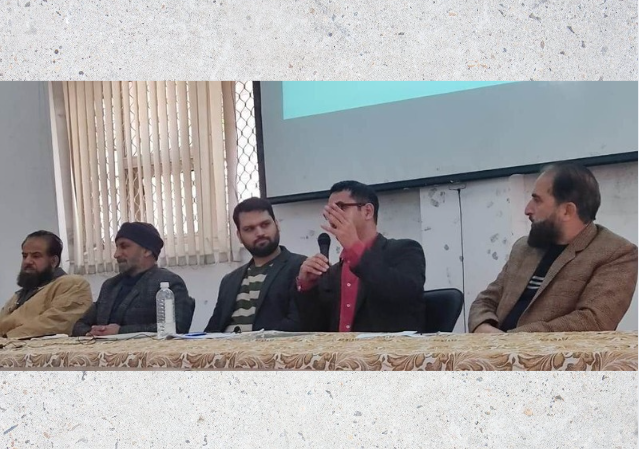Aligarh: The Department of Islamic Studies, Aligarh Muslim University organised a lecture by Dr. Ankur Barua, a senior faculty in Hindu Studies at the Faculty of Divinity, University of Cambridge, on “The Study of ‘Other’ Religions”.
Dr. Barua explored the complexities of interreligious understanding, focusing on Hindu-Muslim relations in South Asia and the broader challenges of studying religion from insider and outsider perspectives. He pointed out the difficulty of creating a universally acceptable definition of religion, emphasising how cultural affiliations and socioeconomic factors influence this question.
Dr. Barua introduced the concept of critical empathy, advocating for a balanced approach that combines empathetic engagement with rigorous analysis when studying religious systems. He suggested that fostering dialogue across religious boundaries requires acknowledging the fluidity of insider-outsider identities and cultivating an informed, empathetic understanding of the “other.”
He emphasised the importance of questioning assumptions, refining conceptual frameworks, and embracing the complexities of religious diversity for meaningful academic and interfaith engagement.
The Convener of the programme, Prof. Abdul Majid Khan, Director of Academics and Research Studies remarked that from an Islamic metaphysical point of view, there is no “Other”. Upholding the validity of critical empathy, he noted that the academic stance of “suspension of judgment” may be an impractical ideal as we are always influenced by our presuppositions, beliefs and worldviews and we need not dilute our identity to affirm the presence and values of the religious “Other”.
He said that religion is not simply a social construct but something divinely revealed and thus contains an element of objectivity that constructivist accounts of religion fail to provide.
The panellists, later, engaged in an open discussion with the audience, including students and faculty members and responded to their queries.
Earlier, Prof. Abdul Hamid Fazili, Chairman of the department, who also presided over the programme, welcomed the guest speaker and introduced him to the audience.
Dr. Saad Ismail, Director, Project Noon, was the co-convener of the event. Dr. Bilal Ahmad Kutty extended a vote of thanks.




